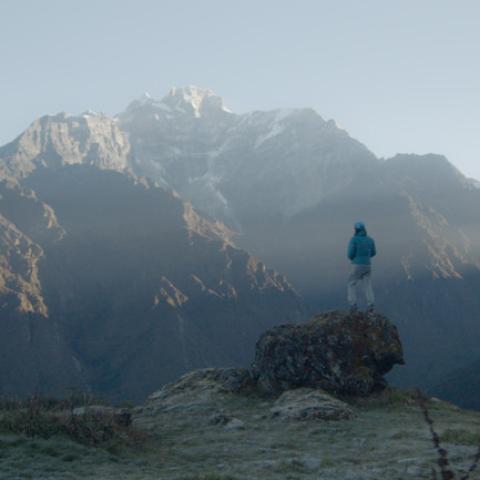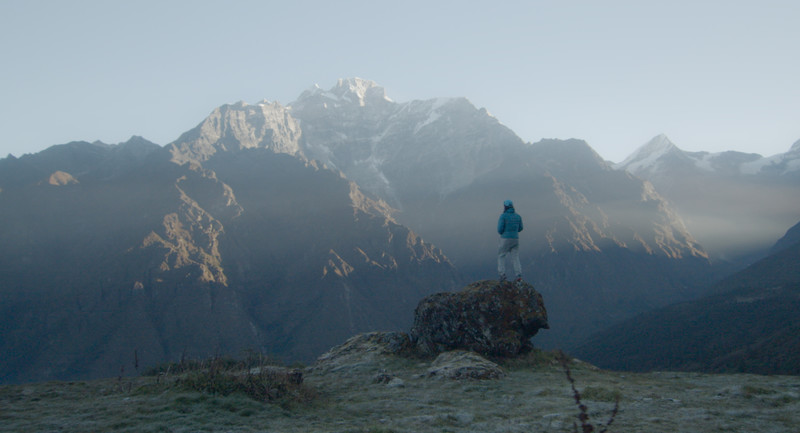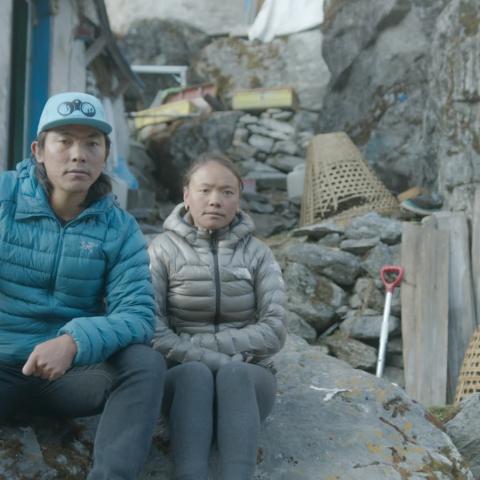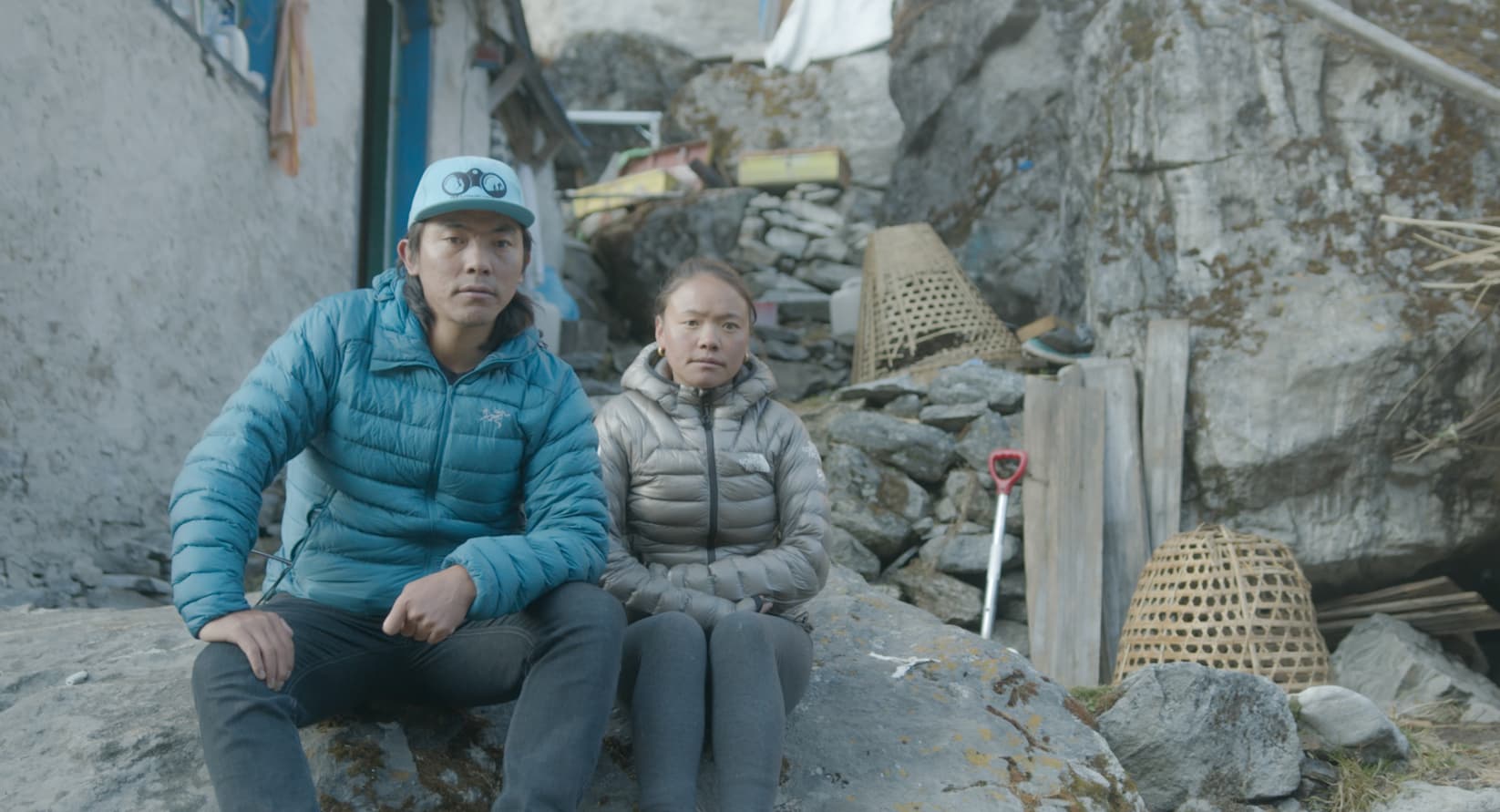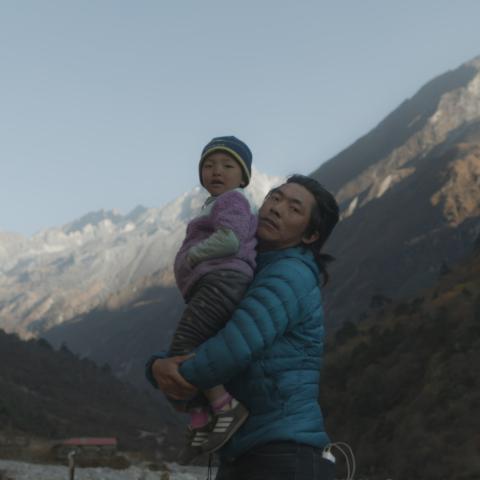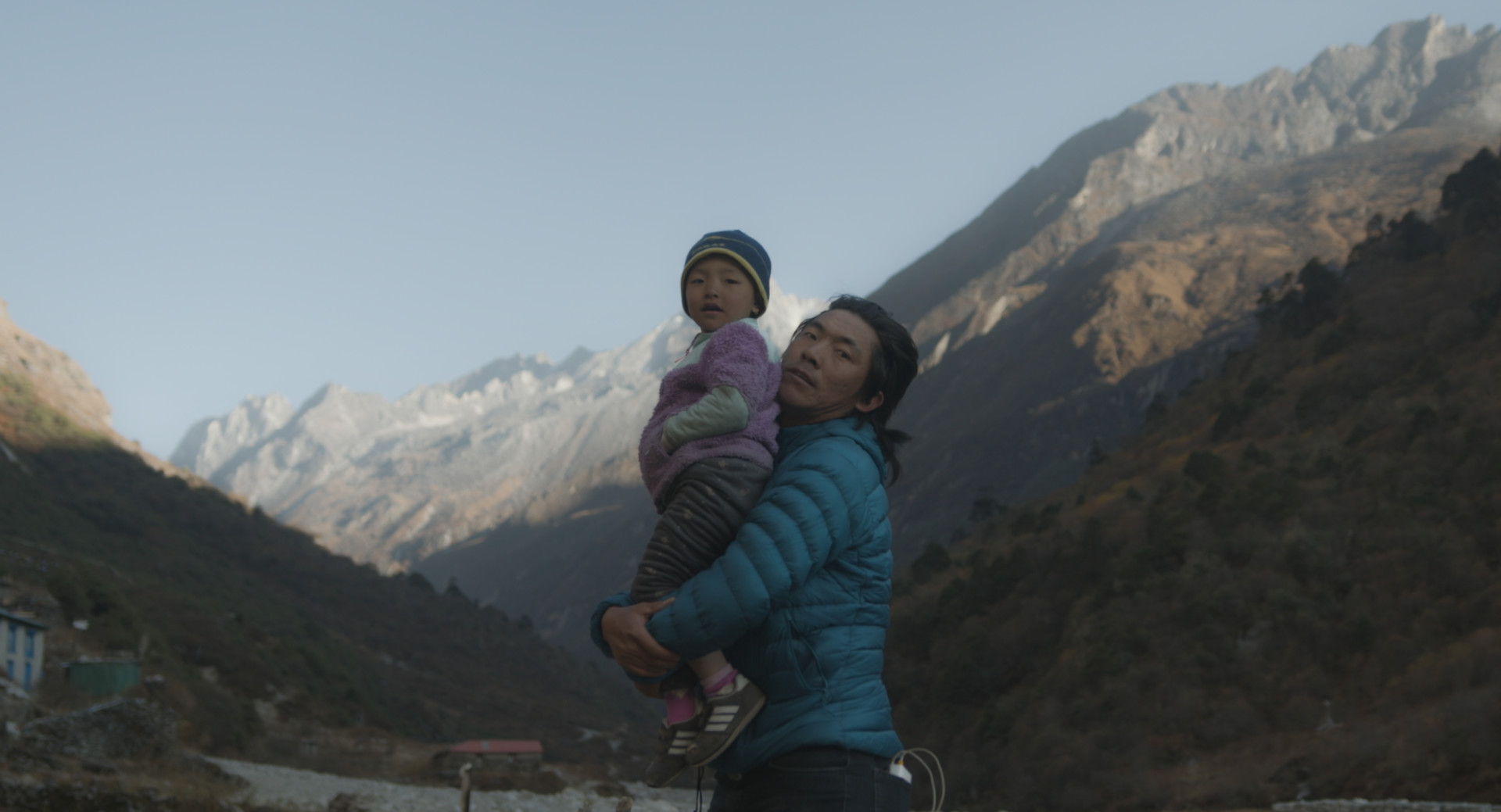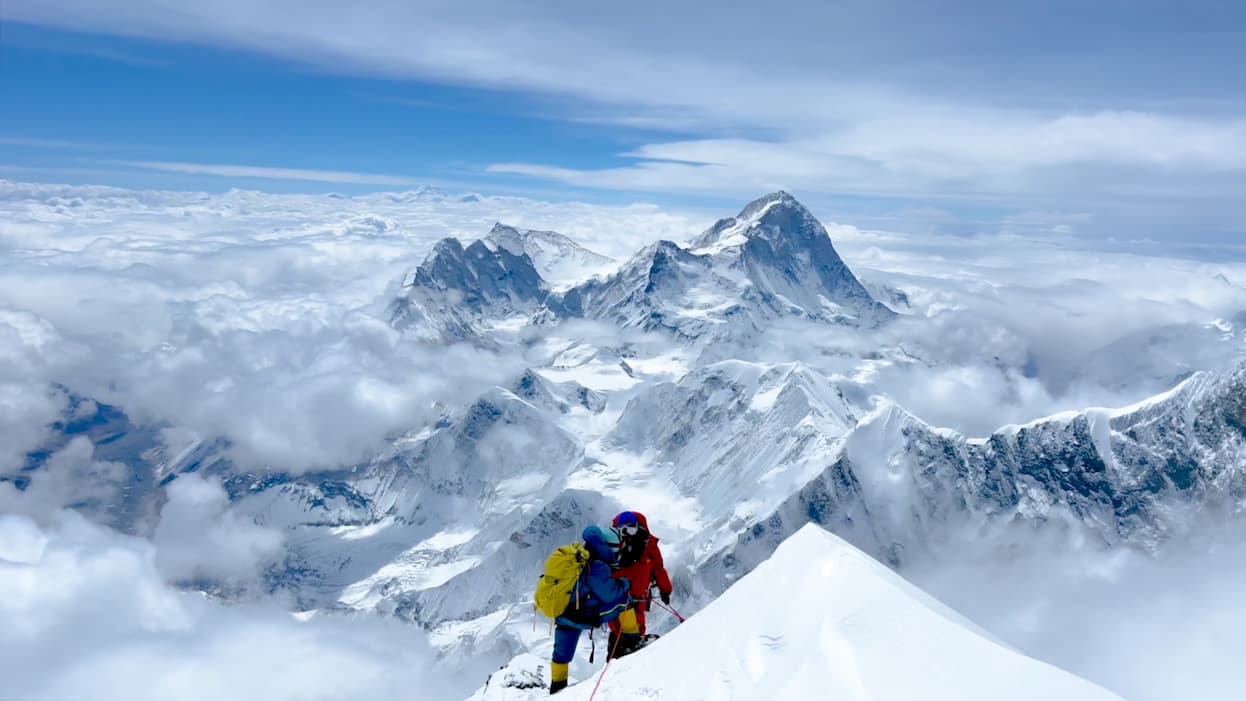
Mingma Gyalje Sherpa is on a mission. Mingma G (as he is more commonly known) is a Himalayan climbing superstar with six summits of Mt. Everest (Chomolungma) under his belt. He was also one of the team leaders for the first winter ascent of K2, the successful summit bid that saw 10 Nepalis reach the top. During the downtime of the COVID-19 pandemic, when tourists and climbers were unable to visit Nepal, Mingma G had time to reflect on how his beloved Himalaya were being treated.
Having always been concerned about the amount of garbage left by expeditions on the mountains he has climbed, in 2020, Mingma G took action; by starting a small organized clean-up of Na, a village in his native Rolwaling Valley. This idea propelled him to go bigger, all the way to the top of the world.
In 2021, amid the pandemic, Mingma G set out with three of his sisters to do something about the garbage on Chomolungma. His sisters Dawa Futi Sherpa, Nima Jangmu Sherpa, and Tshering Namgya Sherpa, had a goal of reaching the summit of Chomolungma to break a world record - to be the first team of three sisters to climb all seven highest summits on each continent. But along with their brother, they all agreed that cleaning up the South Col during their expedition should be a priority.
Mingma recalls, “In 2021, our main goal was to collect rubbish from the South Col/Camp 4 on Everest. As you may have read or seen in pictures, the whole South Col is full of rubbish. We were prepared to collect as much as we could, but we had very bad weather on Everest that year. Actually, it was the worst season ever, where we saw less than 45% of climbers reaching the summit though the success rate on Everest is [normally] close to 80%.”
So the family switched gears and focused on Camp 2, which was less risky. Even though Camp 2 is considered much cleaner than the South Col, their team carried 300 kg of waste down to base camp, including old tents, oxygen bottles, tin cans, and other garbage. Despite the great success of the expedition, it showed the painstaking journey of cleaning up the mountain one load at a time, and Mingma G still has a clean South Col in his sights.
“I still have the idea of collecting rubbish in South Col and setting proper rules for keeping it clean.” Mingma G says, “… all [the] climbers should be responsible for bringing back their own rubbish. I always tell my team to carry only required things above base camp, not to take unnecessary items thinking they might need them."
There is no denying the film shows the beauty of the landscape. The sweeping panoramas might deceive the eye, but once you start to look closer, you can see the number of abandoned tents, equipment, and depleted oxygen bottles left behind high up on the mountain. Mingma G and his sisters want something better for these mountains. They want the Nepali Government to enforce waste management rules beyond Everest base camp, at the higher camps. There are laws and rules in place, but no one there to enforce them.
Mingma G adds, "[the] Nepalese government has rules for everything, but implementation of rules is the key part, which they lack. The SPCC (Sagarmatha Pollution Control Committee) in the Everest region is doing a great job. They make each climber bring at least 8 kg of garbage from above base camp on Everest, which is a great idea, and they don't give garbage clearance letters unless they follow the rules."
One has to wonder, why has the responsibility for cleaning up the mountain fallen to the local people and climbing Sherpas? Shouldn’t everyone who climbs have a ‘leave no trace’ mindset? Chomolungma, and the whole Himalayan range, are harsh environments, but ultimately they are fragile ecosystems that require the utmost care and attention. Mingma’s own expedition company, Imagine Nepal, encourages clients to carefully consider everything that they bring with them, but despite his ethics and company policy, not everyone seems to follow the rules.
“On the 8000-metre peak(s), almost all the foreign climbers hire Sherpa to help them carry, so more responsibility is on Sherpa to bring down the rubbish too. Most importantly, climbers should be responsible and not take excessive food items or equipment above base camp.”
For many Sherpa people, the recent tragedies on Chomolungma caused by earthquakes, serac falls, and even the pandemic itself; are not accidents but what they believe to be willful anger expressed by the Gods at the climbers’ treatment of the mountain. If the mountain can be clean again, the sacredness might return, and the Gods may become calm and perhaps allow ascensionists to pass without incident.
In this age of climate crisis and desperate conservation efforts to save some of the world’s most beautiful places, shouldn’t Chomolungma be at the top of the list? Mingma G and his sisters think so, and so should anyone who visits this remarkable area.
Clean Mountains is an official selection for the 2022 Banff Centre Mountain Film and Book Festival and 2022/23 World Tour.
Author: Joanna Croston
